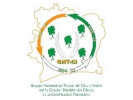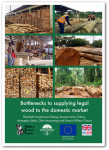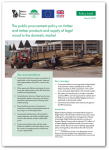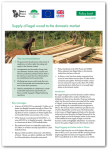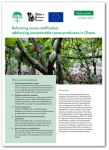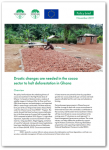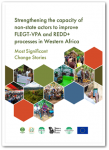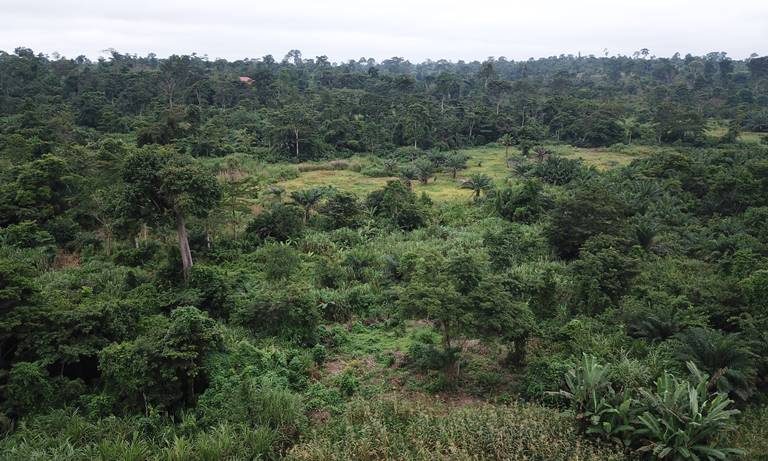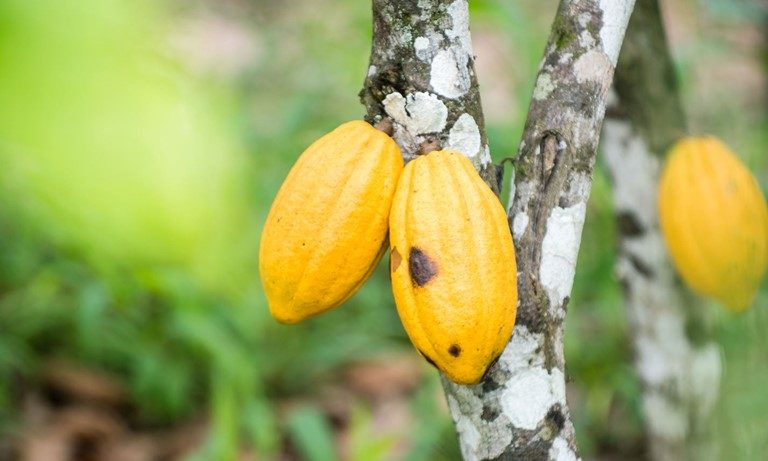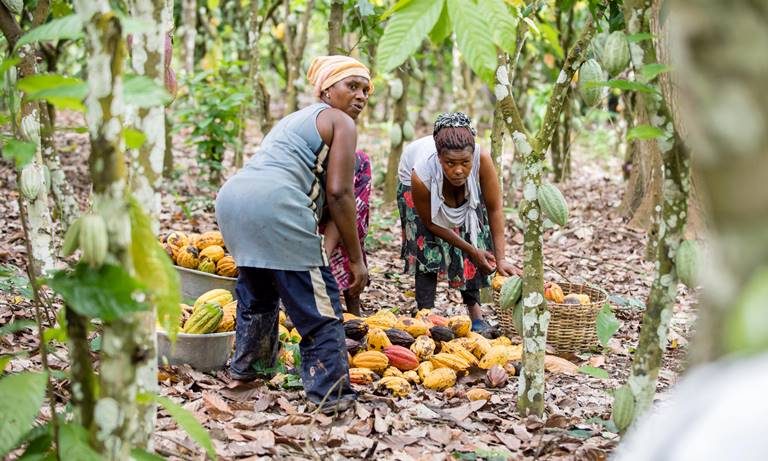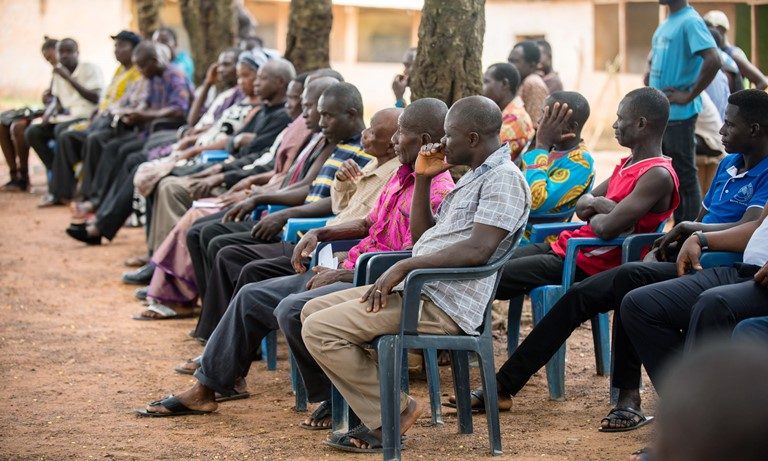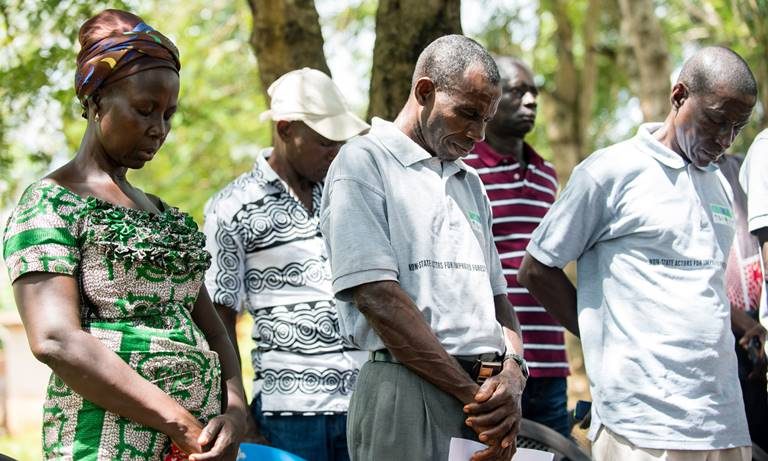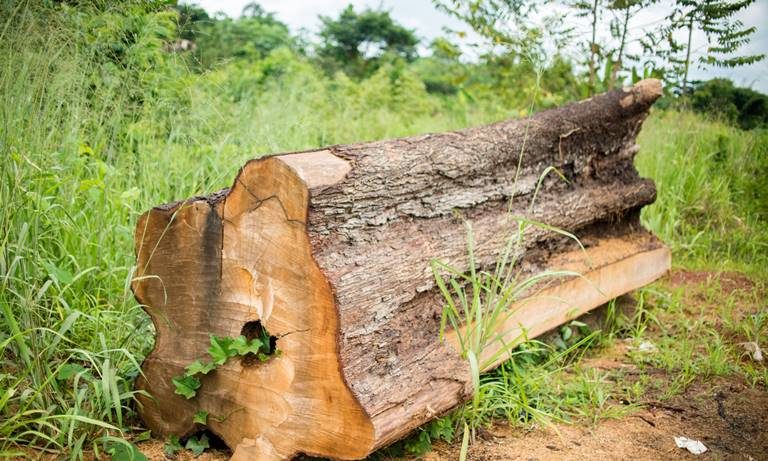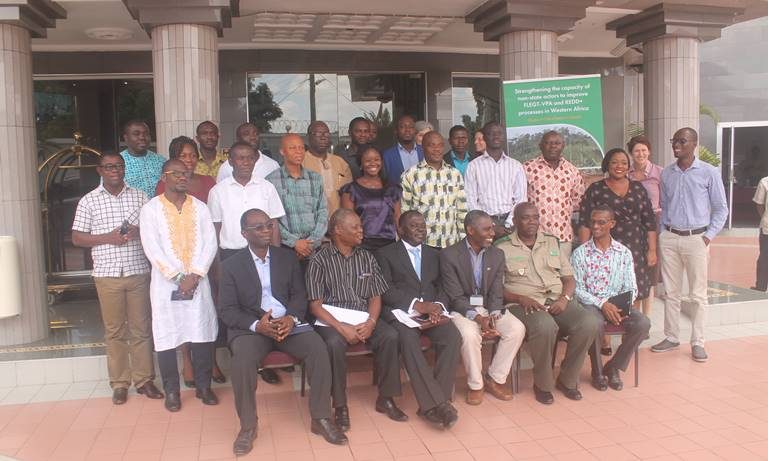Strengthening the capacity of Non-State Actors (NSAs) to improve FLEGT-VPA and REDD+ processes in Western Africa
Background
In Western Africa, FLEGT-VPA and REDD+ processes have become main drivers for reforms in forest governance, with both REDD+ and FLEGT-VPA processes currently ongoing in Ghana, Liberia and Côte d’Ivoire. The success of these processes is heavily dependent on the participation of all stakeholders. Every stakeholder has different needs and interests and is impacted differently by decisions made in FLEGT-VPA and REDD+ processes. To be able to include the diversity of concerns and needs as well as strengths of various stakeholders, it is important to involve all stakeholders, including Non-State Actors (NSAs) in these forest governance process. Inclusive governance will promote a sense of ownership of the process by all stakeholders involved and it is more likely to result in an outcome that is supported by everyone which eventually will result in more sustainable outcomes.
Non-State Actors comprise a wide variety of actors within the private sector, civil society and local communities. Currently, effective NSA participation in FLEGT-VPA and REDD+ processes in Western Africa is mostly limited to large forest and timber companies and a handful of international and national NGOs. Some local communities and small and medium forest-based enterprises (SMFEs) have also been targeted by specific projects but the reach and coverage is still far from adequate not only due to their widespread nature but also because of a lack of systematic institutional attention to these groups and an inadequate representation of their organizations in relevant fora and processes, lack of organization, capacities, strategies and means to participate meaningfully in such processes.
Although the participation of NSAs is important to the success of both forest governance processes, there are several groups that have been barely engaged in the development and implementation of these processes in Western Africa, more so in the case of Cote d’Ivoire and Liberia. Among these groups are SMFEs including community-based forest enterprises, the majority of local NGOs, community-based organizations (CBOs), traditional authorities, women groups, youth groups and forest-dependent communities. This proposal particularly focusses on this category of actors in Cote d’Ivoire, Ghana and Liberia.
The project intends to bridge the gap between the role NSAs ideally would play in forest governance processes in Western Africa and the current situation vis-à-vis the participation of NSAs in FLEGT-VPA and REDD+ processes in Ghana, Liberia and Côte d’Ivoire. The EU NSA project is funded by European Union with overall coordination by Tropenbos International (TBI) and executed in partnership by Nature and Development Foundation (NDF) and Tropenbos Ghana (TBG) in Ghana, Groupe National de Travail pour la Gestion durable des Forets et Certification Forestiers en Cote d’ Ivoire (GNT-CI) in Cote D’Ivoire and Volunteers to Support International Efforts in Developing Africa (VOSIEDA) in Liberia.
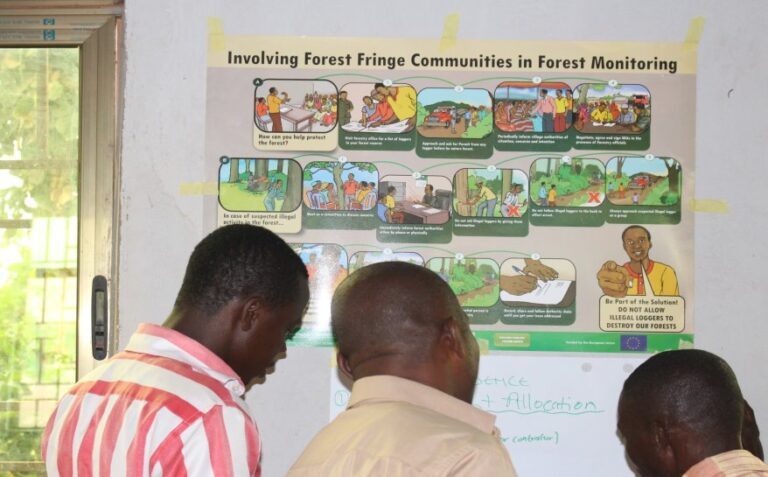
Objectives
The specific objective of the project is to ‘Enhance the capacity of Western African non-state actors (NSAs) to monitor, advocate and engage with state actors (SAs) in FLEGT-VPA and REDD+ processes.’
The overall objectives of this proposed action are threefold:
- The contribution of non-state actors to forest governance and sustainable forest management in Western Africa improved;
- The contribution of forests to development in Western Africa strengthened; and
- Inclusive, transparent and accountable forest governance in Western Africa.
Expected results
- Increased organisational and operational capacities of local and national NSAs to undertake participatory and independent monitoring of forest governance and forest land-use change, including changes in livelihoods and social and environmental safeguards;
- Improved transparency, access to information and accountability in the forest and land sectors;
- Effective engagement of NSAs in FLEGT-VPA and REDD+ processes;
- Viable sub-national, national and cross-border networks of well-informed local non-state actors, and increased cross-border cooperation and information exchanges;
- Information and lessons exchanged with international REDD+ and FLEGT-VPA communities.
Approaches
- Awareness creation, training and NSAs mobilization
- Develop and implement tools for independent forest and land-use change monitoring
- Building coalitions and networks
- Peer-to-peer experiential learning, promotion of good practices and technical guidance
- Monitoring and evaluation
- Sharing of lessons and experiences on NSA user-friendly platforms.
Intervention logic
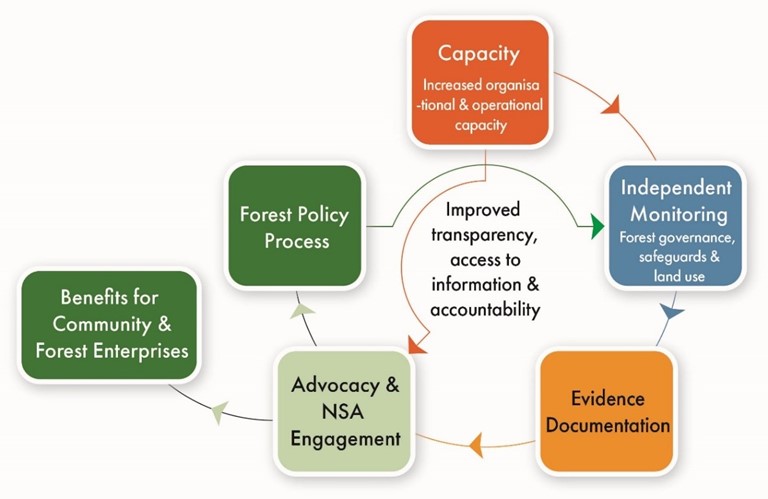
Achievements
- Established network of active forest monitors to influence FLEGT and REDD+ processes and convincing evidence for advocacy in forest and land governance is brought together.
- Communities know how much revenue is generated from the forest and receive their benefits real-time and become better monitors of the forest.
- Best forest legality practices shared in Ghana with an increase in investment flow into the country.
- NSAs have influenced decisions on FLEGT and REDD+ leading to an operational FLEGT license.
- State actors more accountable of forest revenue usage with improved benefits flow to communities.
- Enhanced availability and access to information on the impacts of REDD+ and FLEGT-VPA processes to beneficiary communities.
- Improved forest governance leading to equitable tree tenure benefits sharing and increase the supply of legal wood to the domestic market with the passage of the PPP.
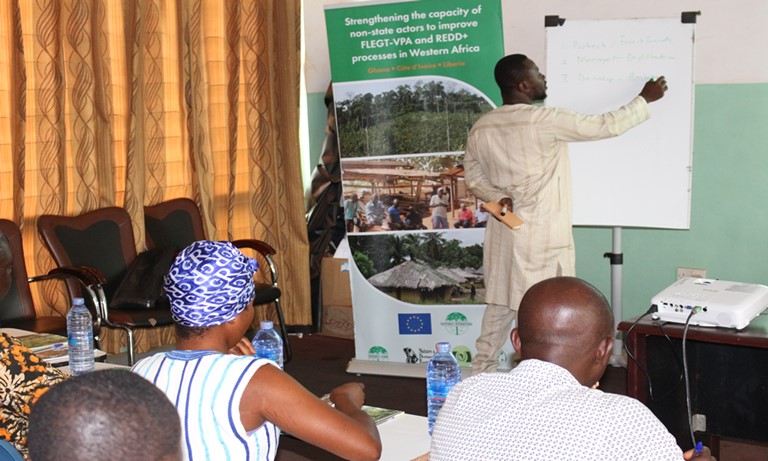
The project has trained over 300 community monitors in 51 communities to monitor and collect data on illegal forest infractions using the ForestLink Real-Time Monitoring (RTM) technology app on some selected thematic issues. Platforms of engagement have also been created across platforms such as:
- Civil Society-led Independent Forest Monitoring (CSIFM) Platform organizations and Forestry Commission at the National level on collaboration on Independent Forest Monitoring.
- Community Based Organizations (CBOs) and State Authorities as well as communities at the regional and district levels.
- Community Monitors and State Authorities at the District Level through SRA fora, Town Hall meetings and Community Durbars.
Duration
2017-2021
Sponsor
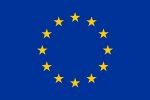
European Union
Partners
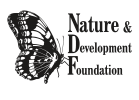
Nature & Development Foundation (NDF)
Ghana
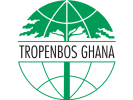
Tropenbos Ghana
Ghana
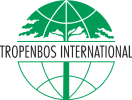
Tropenbos International
The Netherlands
